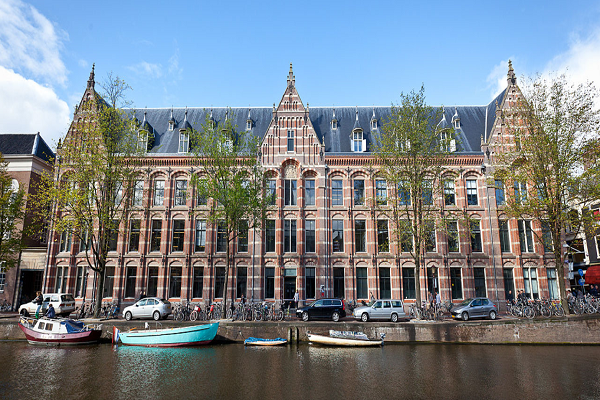University of Amsterdam kicks off with its digital agenda implementation
The implementation plan for the digital agenda has been approved by the Executive Board, which means that all teams involved can begin working on UvA’s digitalisation strategy. What will happen next? And what will this mean for our students and staff? To find out, we spoke with Maarten Emons, programme leader for the digital agenda and Director of Information Management at the UvA.
‘The adoption of the digital agenda by the Executive Board was both a final step and a starting point’, says programme leader Maarten Emons. ‘In recent months, we have worked with faculties and units to identify what is needed to realise all our ambitions. It is impossible to achieve every single ambition right away in 2023, so choices will have to be made. We have listened carefully to what the faculties say they need. We have also checked to see whether there is enough “energy” in the organisation to successfully carry out a given initiative and whether we are making sufficient investments in renewal. These efforts have resulted in the implementation plan for the digital agenda.’
Long-term Implementation Plan (MJUP) / ICT Portfolio 2023
The MJUP / ICT Portfolio is the implementation plan for the digital agenda, the digitalisation strategy adopted by the UvA. It includes the initiatives we will be working on in 2023 and the initiatives that are scheduled to begin from 2024. In 2023, we will invest over 10 million euros in digital renewal at the UvA, based on the vision for digitalisation set out in our digital agenda. The central principle of this vision is that we must capitalise more on possibilities for digitalisation in order to renew our research and education programmes.
Results of prioritising for 2023
More than half of the budget for 2023 has been allocated to making improvements in connection with education and teaching logistics. The largest portion of this will be used to support initiatives that have already been started and will be continued in 2023, while around 20% will go toward new initiatives. ‘We intend to realise a much more radical overhaul’, Maarten explains. ‘Based not on who complains loudest or is the most stubborn, but rather according to priorities we’ve set based on a vision and an articulation of our collective needs. We are going to pay a lot more attention to the actual user and respond to specific needs rather than offering generic solutions. I’m quite proud of this!’
The implementation plan for the digital agenda includes nearly 50 initiatives – far too many to list here. With that in mind, Maarten shares a few examples of recently completed and upcoming projects.
Improved course registration for students
‘As of December, all faculties have made the switch to course registration via GLASS. A major advantage of this is that it allows all students to register in the same way and at the same times. Students from a variety of degree programmes and study years are taking part in efforts to improve the course registration process.’
I have used it twice so far in my Master’s, and I thought it was a good system. It’s very well organised, with everything on one page. And I liked that there’s no need to hurry. That makes the entire process more relaxed.
Nynke Verhaar, Political Communication student
Admission to Master’s reduced from 67 to 14 days
‘We are working to drastically reduce the processing time between application and admission to a Master’s. This will give students a clear answer more quickly on whether they will be able to enrol in a given Master’s programme. It will also reduce the administrative burden placed on our staff.’

